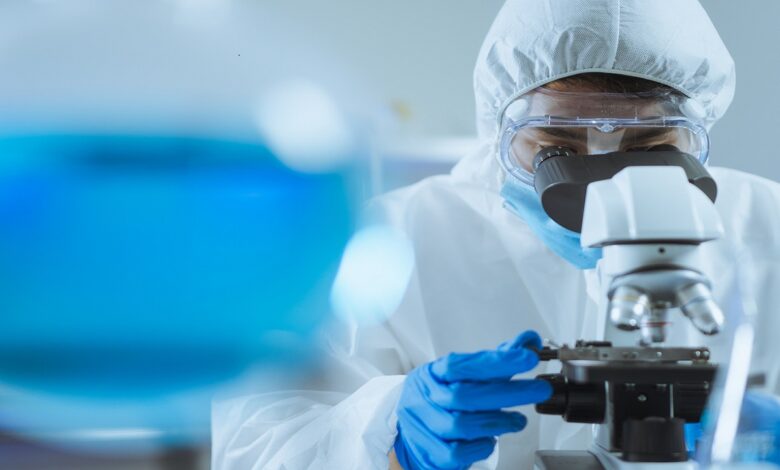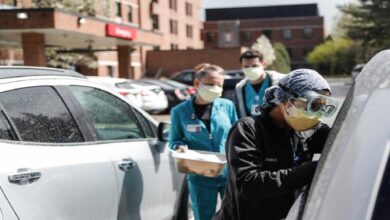Can autoantibodies play into coronavirus severity, long COVID? Some researchers suggest yes

New findings out from Yale University suggest autoantibodies — or proteins acting against a person’s own tissues and organs — may correlate with COVID-19 severity and lasting symptoms. In some coronavirus cases, these autoantibodies can fight healthy tissue in the liver, brain, gastrointestinal tract, blood vessels and platelets, researchers found.
A team of researchers at the university published findings on Wednesday in the journal Nature, drawing on blood samples from 194 coronavirus patients at Yale-New Haven Hospital ranging in severity of illness, and dozens of uninfected controls. Professors and students worked with the Yale IMPACT team (a group of doctors and scientists researching COVID-19) to analyze the samples for autoantibodies. They used a technology called Rapid Extracellular Antigen Profiling (REAP) to look at interactions between antibodies and almost 3,000 human proteins.
COVID-19 VACCINES NOT LINKED TO FERTILITY ISSUES, RESEARCHERS SAY
“It’s a two-edge sword,” said Aaron Ring, assistant professor of immunobiology at Yale and senior author of the paper, in a news release posted to EurekAlert. “Antibodies are crucial to fend off infection, but some COVID-19 patients also develop antibodies that damage their own cells and tissues.”
In most cases, the coronavirus infection spurred the creation of autoantibodies, Ring said. But it’s possible some patients had pre-existing autoantibodies that heightened their vulnerability to infection which was confirmed through studies in mice, per the release.
EXPERT SAYS HE FOUND WHY SOME COVID-19 VACCINES TRIGGER CLOT ISSUES
“Our analyses revealed an expansive autoantibody landscape in COVID-19 patients and identified distinct autoantibodies that exerted striking immunological and clinical outcomes,” the study authors wrote. “These results implicate previously underappreciated immunological pathways in the etiology of COVID-19 and suggest novel therapeutic paradigms centered around modulating these pathways, as well as attenuating the autoantibodies themselves. Finally, our findings provide a strong rationale for a wider investigation of autoantibodies in infectious disease pathogenesis.”
The study authors also suggested the “long-lived rogue autoantibodies” might help explain so-called “long COVID,” or coronavirus patients who recover from their initial infection but go on to experience lasting effects months later.
“This could be the unfortunate legacy of the virus,” Ring said.
Akiko Iwasaki, the co-author of the study and the Waldemar Von Zedtwitz professor of immunobiology at Yale University, said the findings highlight the need for vaccination to reduce the risk of long-term health effects.
“The fact that even mild infections are associated with autoantibody production underscores the potential for long-term health consequences of COVID-19,” Iwasaki said.
Other researchers have previously explored the role of autoantibodies in COVID-19 severity and long COVID. A group of researchers from Boston University, for example, published early findings in the pre-print server medRxiv in January. The small study included nine samples from mild and asymptomatic coronavirus patients in which autoantibodies were detected up to seven months after infection.
“It’s a signal; it’s not definitive,” Dr. Nahid Bhadelia, lead study author and director of the special pathogens unit at Boston Medical Center, previously told the New York Times. “We don’t know how prevalent it is, and whether or not it can be linked to long COVID.”
Source link






